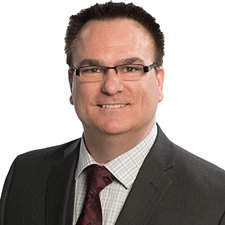
Lora Grady
March 4, 2024
Retirement is meant to be celebrated, the official start of your golden years — pursuing passions, cottage weekends, golf vacations.
But more than half of Canadians nearing retirement are realizing their savings won’t be enough to cover their costs let alone their dreams.

iStock-1443548838
A recent survey from Deloitte Canada showed that nearly 55 per cent of three million soon-to-retire households will have to make lifestyle compromises to avoid outliving their savings (up to 73 per cent if you factor in unexpected costs such as health care).
If you’re inching closer to retirement and are worried that your savings won’t be enough, don’t panic. Experts say there are lots of steps you can take to get your spending on track, save with intention and still enjoy retirement.
You are not alone in being behind
It’s not uncommon for people to realize they haven’t done enough to prepare for retirement, says Jessica Baker, executive vice-president of retail wealth at Co-operators. In fact, the Deloitte survey shows 58 per cent of near-retiree and retiree households do not have a formal or detailed retirement plan in place, and only 14 per cent of those polled can retire with confidence.
Government programs help, but they can’t fund a modest retirement lifestyle entirely: still, 31 per cent of near-retirees will rely almost exclusively on government support to sustain their retirement, according to Deloitte. The Old Age Security (OAS) pension and the Canada Pension Plan (CPP) are protected against inflation, and there’s also the Guaranteed Income Supplement (GIS) for those who collect OAS and have low income.
The reality is that most folks don’t think much about retirement until they reach their fifties, says Kurt Rosentreter, CPA, CA and financial adviser for Manulife Wealth. For many people in their early forties who are focused on paying off a mortgage or saving for their children’s education, the personal milestone isn't even on the radar.
Take control, and figure out where you’re at right now by starting with a basic cash flow exercise, says Rosentreter. Make note of your assets (including your home, savings, etc.) and your liabilities (including debt), your income, spending and saving. Then decide what age you’d like to retire, figure out what you’re currently saving every year and calculate what it will add up to by then.
Consider how you’ll want to spend your retirement, whether you’re hoping to travel or pursue a hobby, says Naseem Husain, senior vice-president and ETF strategist at Horizons ETFs. Are you putting enough away now for the lifestyle you’re going to want? Depending on your future goals, you may find that you need to tighten up your budget stat.
Identify where you can cut back
Take a look at your spending over the previous year — what did you earn and what did you spend it on? “Ground zero is getting a handle on how you spend and what you make,” Rosentreter says. It’s all about finding a balance. “You still have to enjoy life and take vacations. But you have to be realistic about your long-term goals as well.”
Creating a monthly budget will help you identify opportunities for small cuts that won’t majorly alter your lifestyle, says Baker. Little costs can add up fast, especially with online shopping and digital payments, if you’re not tracking your expenses in one place.
“You make little cuts in a lot of different places, and it adds up,” says Carlo Cansino, senior financial adviser for the McClelland Financial Group. Go through your credit card statements and look for expenses you may have missed, such as duplicate subscriptions to apps.
Cansino suggests looking for other small life hacks, like cheaper substitutes for repeat purchases and planning weekly meals before grocery shopping, to avoid unnecessary purchases.
You’ll also want to look at your entertainment charges. Baker agrees that small changes make a difference — even drinking water instead of paying for a beverage during dinner out or choosing to watch a movie at home instead of going to the theatre can help. She adds that you should consider which subscription fees for streaming services and gym memberships are worth it. “It may surprise you to see how much you're spending there,” she says.
Once you’ve figured out your budget moving forward and know how much you need to save each month, set up automated payments. That way, you won’t have to think about it (or be tempted to spend it).
Find out what makes sense for your unique situation
If you feel lost or in need of advice on getting real about saving for retirement, seek guidance from a financial adviser. Planning for retirement is not one-size-fits-all, says Baker, and a professional can help you figure out your personal priorities and expenses without judgment. “Then you can make the choices that work for you.” A professional can also help you decide what investments may be worth your time and what savings accounts will make the most sense for your unique situation.
With a registered retirement savings plan (RRSP), you get a tax credit when you put money in. People often use it as a way to minimize their immediate tax burden, says Baker. Your money can also grow faster in an RRSP because you don’t have to pay taxes on your investment income until you withdraw the money. With a tax-free savings account (TFSA), money you take out isn’t taxed as income, so you can take out money for a vacation or other expenses.
“Even starting with a small amount, like $50 a month, can grow,” says Baker. “With the power of compound interest, and the power of government programs like RRSPs and TFSAs, you can enjoy that tax-deferred investment growth, and that's how wealth builds.”
If you’re one to five years out from retirement, it’s even more important to speak with a financial planner, says Husain. “They'll give you some very blunt advice about how to reduce your lifestyle to accommodate what you have,” he says. You may need to consider more drastic measures, such as downsizing to a smaller home in a less expensive location.
The most important thing is to remember that there is help available. “There are so many innovative new solutions to help people with their retirement,” says Husain. You just have to find the motivation to get started. Visualizing that dream trip to Bali might be a good start.


